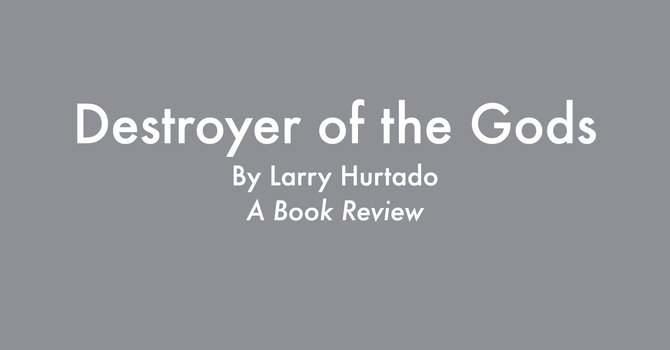Charles Taylor’s “A Secular Age” is widely considered the most helpful analysis on how we have come to live in our current cultural climate. Using intellectual history, Taylor, a Catholic and distinguished Canadian philosopher (Emeritus, McGill University), has written a tome of just over 900 pages, dense with the history and effects of modernity and lack of belief in our current time.
I guess it should be said that this point: I’ve never read it. Before you click back to Facebook and the newest Fail Army video you’re dying to watch, give me a few more moments.
I have read Taylor’s precursor, “Sources of the Self – The Making of the Modern Identity” (1983) which took me almost 8 months to get through. This book traces how we have gone inside of ourselves, instead of outside, to find the moral good. Many themes in “Sources of the Self” are picked up and developed further in “A Secular Age.”
In celebration of the 10-year anniversary of the release of A Secular Age, The Gospel Coalition released “Our Secular Age: Ten Years of Reading and Applying Charles Taylor.” It is an edited work reflecting on Taylor’s philosophy in different areas (politics, preaching etc.).
This, I have also read (the 159 pages was a little easier to work through).
It is vital to any Christian leader to learn how to read Scripture, but at the same time be able to read culture well. Taylor offers the latter.
As I have read Taylor, he has enabled me to read culture. With my interaction, with his thinking, how would I distill it?
Here are three major themes present in A Secular Age:
1. Malaise of Modernity
One of the benefits of our culture is the freedom it offers. The chief end of my existence is my own flourishing, and I am allowed to define what that means. There is boundless liberty in designing my existence.
However, with this freedom comes a sense of “missing something, being cut off from something, like that we are living behind a screen.”
Taylor submits that we feel this “malaise” in three ways:
• We struggle to find purpose and meaning in our lives. The question “is my life going somewhere?” seems daunting and impossible to answer definitively.
• The big moments of life seem to “heighten” the malaise. How do we understand births, marriages, and deaths now that they are cut off from their transcendent origins? We try to sneak transcendence in the back door of a worldview that has firmly slammed the door shut.
• There seems to be a drudgery in the everyday moments of life as the cycle of desire and consuming never stops. Now that we are stuck in this immanent frame, where do we go to fulfill our transcendent appetite?
The immanent frame is defined by mechanistic naturalism – or the idea that there is a physical explanation for everything.
Mike Cosper, a contributor in Our Secular Age, describes effects of the immanent frame like a dome. Inside the dome is the secular environment we all live; outside the dome is transcendence. Trapped inside this dome we bump up against the ceiling of it, wanting to break through, but inevitably find ourselves back in naturalism.
2. Age of Authenticity
My wife, Krista, and I have a guilty pleasure: the reality television show The Voice. We noticed that in every episode the coaches encourage their team to “be who they are” and to ensure that they stay true to this. This same instruction is championed in our culture no matter where you are and anything or anyone who opposes this mindset should be shunned.
A key idea in the work is how our culture prizes “expressive individualism.” What matters most is that you honour your authentic self. This means that our “modern secular age disciples our hearts to be true to ourselves, to reject all outside institutions.”
Taylor describes it this way:
Each one of us has his/her own way of realizing our humanity, and that it’s important to find and live out one’s own, as against surrendering to conformity with a model imposed on us from outside, by society, or the previous generation, or religious or political authority.
This concept leads people to prize autonomy and freedom over all other ethics. You see, to conform to anything outside yourself is not to live authentically to who you actually are.
This is problematic for historic Christianity as it places the authority not on the inner desires, but on God’s directives. Here is the difference: “The authentic self says, ‘This is me; you must accept me as I am.’ The vulnerable self says, ‘This is me; take me and transform me.’”
Christ invites us to go outside of ourselves for meaning and significance to find who we truly are. The idea that we are God’s creation means that we should seek His wisdom for our lives.
I see a few problems with this idea of the authentic self:
• The idea that we can just be who we are, removed from any community or outside influence is arrogant and misguided. We are the product of more forces than just ourselves. This is why we have (the sometimes dreaded) speeches at wedding receptions; they remind everyone that the couple has been dramatically shaped by others.
• We are too fickle and change too often to be able to trust ourselves. We always think that our previous selves were a bit ignorant and out of touch. We don’t know ourselves as well as we think we do. Don’t believe me? Grab a high school yearbook and look at your haircut. Most of us would confess, “What was I thinking?!”
3. Buffered vs. the porous self
The basic difference between a buffered self of the modern age and porous self of earlier eras is the question of vulnerability. In previous centuries, it was assumed that we were vulnerable to spirits, both evil and good, and could be affected by the ‘presence’ of something beyond the human and physical.
This has been all but forgotten in our secular age.
The porous self-believed in a soul that needed connection with a higher reality or story. The buffered self now is self-contained. Whereas historic Christianity sees meaning, morality and satisfaction come from outside the self, the buffered self “seeks all of that from within.”
Additionally, this venture into ourselves has dramatically reshaped our view of God’s place in our lives. His role has changed from Sovereign Creator to cosmic butler – out to serve our flourishing. As we have closed ourselves off from outside forces, the highest good seems to be in the prosperity of self (as is the outcome of our age of authenticity).
No one is immune to viewing God as a cosmic butler. Interestingly this cultural position, prized and inherited in the West, informs Christians as much as it does non-Christians.
As Collin Hansen frames it, “A key theological question for our secular age is: Does God get to be God? The answer for many self-described Christians is, ‘No, only on our terms.’”
Fish in the Fishtank
The story goes that two fish are swimming along and meet an older fish swimming the other way. As they pass, the older fish asks, “Hey boys, how’s the water?”
The two fish keep swimming along until one finally says, “What the heck is water?”
The water that we swim and live in is defined by A Secular Age. You may or may not realize it, but we are saturated and influenced by our culture and Taylor puts words to this experience. This is true whether you consider yourself a believer in Jesus or not.
This may mean that you unknowingly feel the malaise yourself: endless cycles of desire and consumption and through all of it, the weighty question of, “what is this all for?”
Or it could mean that these realities have deeply influenced your view of God. Instead of God being out for God and His glory, He is instead a cosmic butler who is simply there to serve your needs. A cosmic butler is not a god to be feared, rather one to be ordered around.
Where to from here?
The malaise of modernity, the age of authenticity and the buffered self, although presenting noted challenges, offers some hope for the reception of the Christian message.
1. The starting assumption of our culture is that we don’t know who we are. Why is that? Why do we need to “find ourselves”? It is because we know that there is something incomplete within us. We know that we are a little lost and need something to help us find our way.
However, it is not that we need something, but Someone. When our lives are found in Christ, we find the source of our life and then come to understand who we actually are.
2. As Taylor notes, the shift in our age is not a declining belief in God or a dilution of ethical commitments, but “lies in our definition of ‘fullness.’”
As we continue to bump into the ceiling of the immanent frame, our culture will unconsciously become hungry for an answer that satisfies, that fills their innermost desire for meaning, purpose, and transcendence. Self-sufficient humanism will leave us, and the wider culture, wanting.
It is in the bankruptcy of this worldview that the gospel message will find a new home for people who have obtained everything and yet are more unsatisfied than ever.
So what?
I think Saint Augustine helps us as we move forward.
He famously said in his Confessions, “You have made us for yourself, and our hearts are restless until they find their rest in you.” A life without God leaves you as the arbiter of meaning and purpose. This is the way of naturalism and of our culture. Jesus offers a better, more satisfying and more fulfilling life.
And it seems as our culture continues to move further away from God, the hearts of people will feel this more than ever.
To buy Our Secular Age, click here.
To buy A Secular Age, click here.
To buy Sources of the Self, click here.



